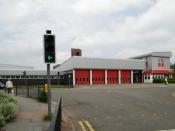Whilst politics may not have been directly the cause for the Merthyr Tydfil and Newport Risings, the political decisions of a Government in its bills and statutes can adversely affect a defined population, such as the coal and ironworkers of South Wales, and set into motion a movement that politically changes the country. The risings that occurred in both Merthyr and Newport could have heralded a dramatic change in the government of the day, however this did not happen and within 10 years of the events at Newport, the Chartist movement, which saw its grass roots beginnings in the actions at Merthyr in 1831, was politically finished.
It can be argued that both the risings in Merthyr Tydfil and Newport, although similar in action, cannot be looked upon and judged as having occurred for the same reasons. The events in Merthyr were not directly politically motivated, but came from a need of the people based on employment and living conditions and was specific to a localised area, whereas it can be shown that the actions in Newport had strong political aspects pertaining to it, due to the influence of the chartist movement at this time, and were not wholly centered on local issues.
However, even though the rising at Merthyr was not directly political at its inception, it can be said that the event came about due to the politics of the day and would go on to inspire political movements of later times, such as the events in Newport in 1839. Population increase in Merthyr at this time would also have had an effect on the local economic and political climate. In 1801 the population of Merthyr, according to the census of that year, had reached 7,700. By 1831 it was estimated to be over 40,000 people working...


